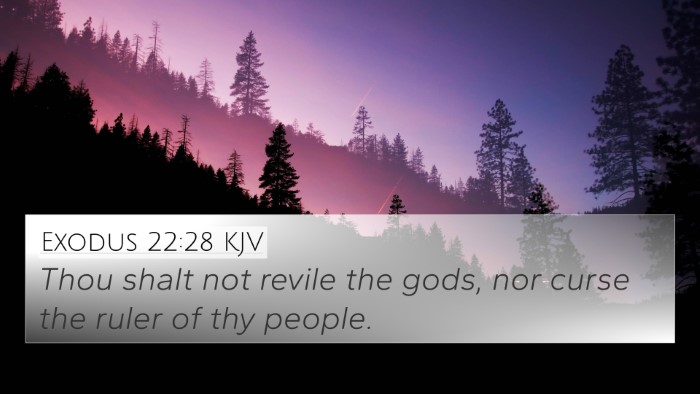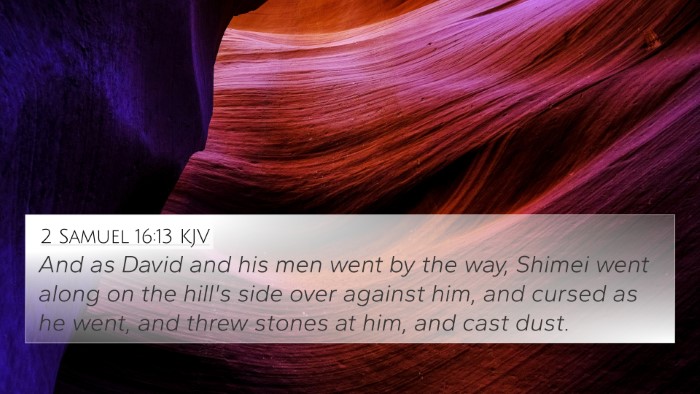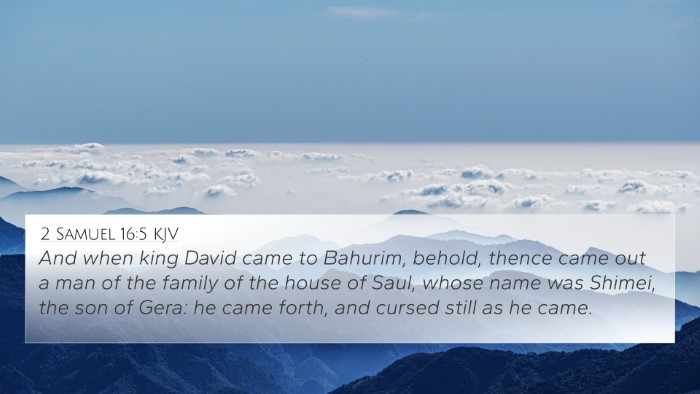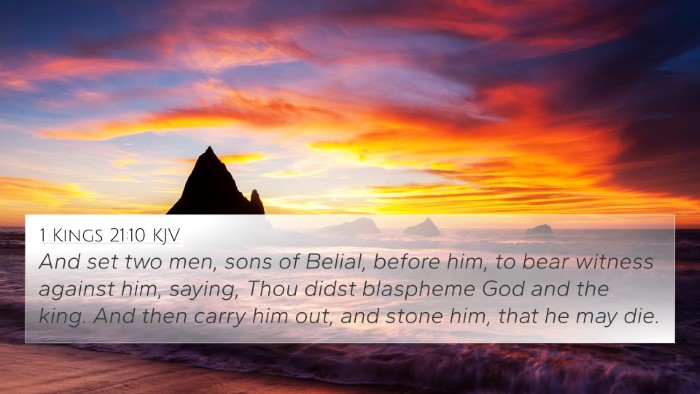Understanding 2 Samuel 19:21
Verse: "But Abishai the son of Zeruiah answered and said, 'Shall not Shimei be put to death for this, because he cursed the Lord's anointed?'" (2 Samuel 19:21, NKJV)
This verse comes in a crucial moment during the reign of King David, reflecting themes of justice, mercy, and the power of God’s anointing. The discussion around Shimei, who had previously cursed David, invites us into deeper theological themes concerning the nature of authority and divine appointment.
Commentary Insights
Various public domain commentaries offer profound insights into this verse, providing context from historical, theological, and moral perspectives:
- Matthew Henry: Henry focuses on the mercy exhibited by David in sparing Shimei, despite Abishai's desire for retribution. This signifies David's understanding of his own failings and the need for grace, suggesting that we should extend forgiveness as God does.
- Albert Barnes: Barnes highlights the principle of divine justice at play. He mentions that while it is natural to seek justice for offenses against the Lord's anointed, David bypasses this impulse, showing wisdom and restraint. His decision indicates a higher moral ground, rooted in God’s sovereign plan.
- Adam Clarke: Clarke emphasizes the historical context, noting that Shimei's cursing was a significant violation against the king. However, Clarke adds that David’s deliberation before acting reveals his desire to avoid bloodshed and conflict among his own people.
Thematic Connections
This verse links with several significant themes within Scripture:
- Grace and Forgiveness: David’s sparing of Shimei parallels the New Testament teachings of forgiveness, particularly in Matthew 5:44, where Jesus instructs us to love our enemies.
- Authority and Sovereignty: Romans 13:1-2 discusses the divine order of authority, reinforcing that all authority is instituted by God, a theme echoed by David's response.
- Divine Judgment: The events surrounding Shimei remind us of God's judgment, as seen in Psalm 37:1-3, encouraging believers to trust in the Lord’s timing for justice.
Cross-References for Further Study
To deepen understanding of this verse, consider these cross-references that illuminate similar themes:
- 1 Samuel 24:6: David spares Saul, exemplifying mercy.
- Luke 6:37: Jesus teaches about not judging others.
- Matthew 18:21-22: Peter asks about forgiveness, highlighting the necessity of forgiving others repeatedly.
- Romans 12:19: "Vengeance is mine, says the Lord," affirming God's role in justice.
- James 5:9: Warns against grumbling against one another, promoting a spirit of unity and mercy among believers.
- 2 Samuel 16:5-8: The context of Shimei cursing David offers insight into David's character and his decisions regarding retribution.
- Proverbs 20:22: Encourages waiting on the Lord for vindication rather than seeking revenge.
Practical Application
As believers reflect on 2 Samuel 19:21, they are encouraged to consider:
- Judgment versus Mercy: How do we balance our sense of justice with a call to forgiveness?
- Authority and Accountability: In what ways do we recognize God's sovereignty in our leaders and circumstances?
- Responses to Offense: When others wrong us, how can we embody the grace that David exemplified?
Conclusion
The study of 2 Samuel 19:21 invites believers to reflect on their attitudes towards authority and forgiveness. By exploring interconnectedness between the Old and New Testaments, believers gain deeper insights into the character of God and His call for us to respond to others in love and grace.









